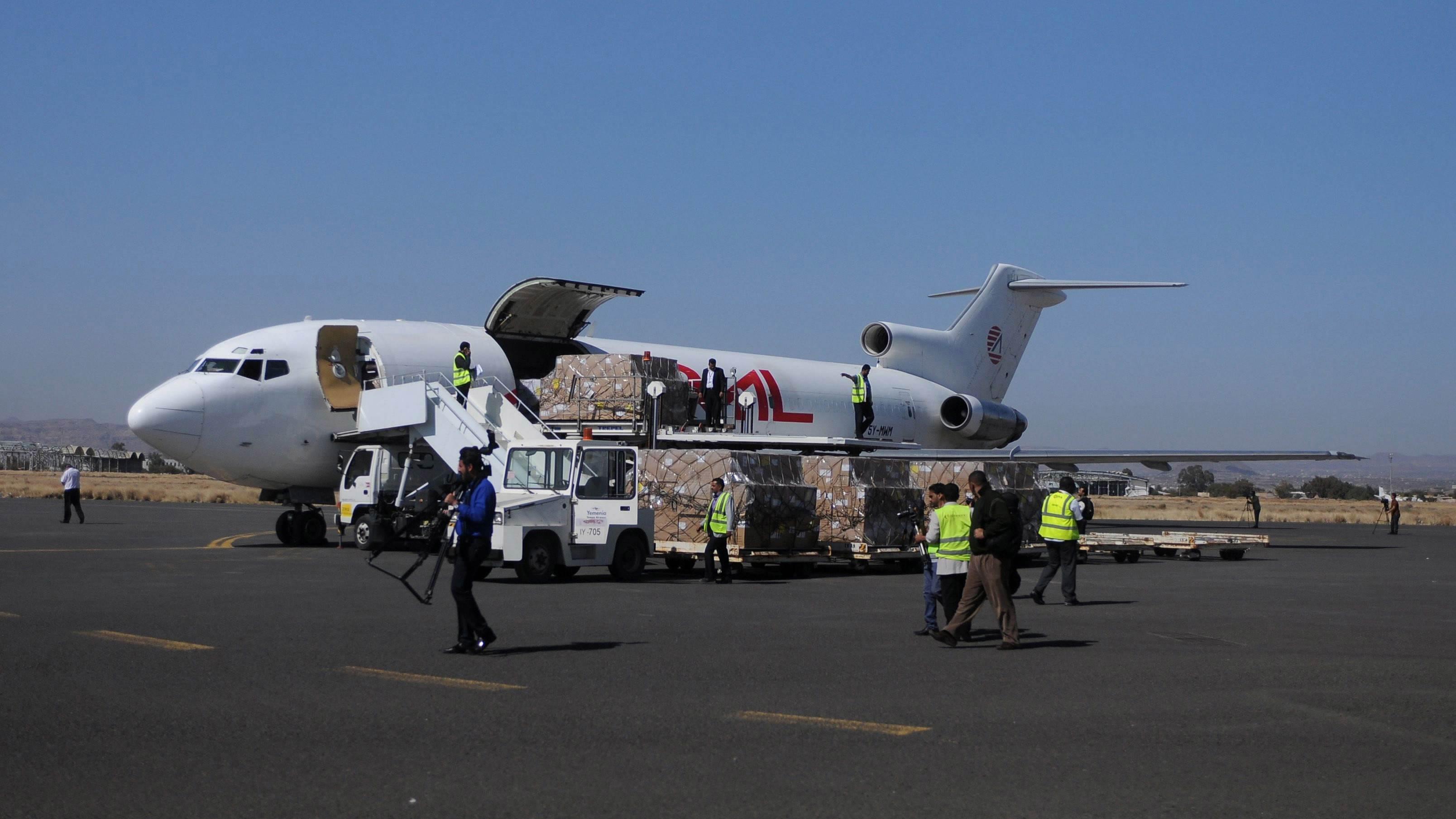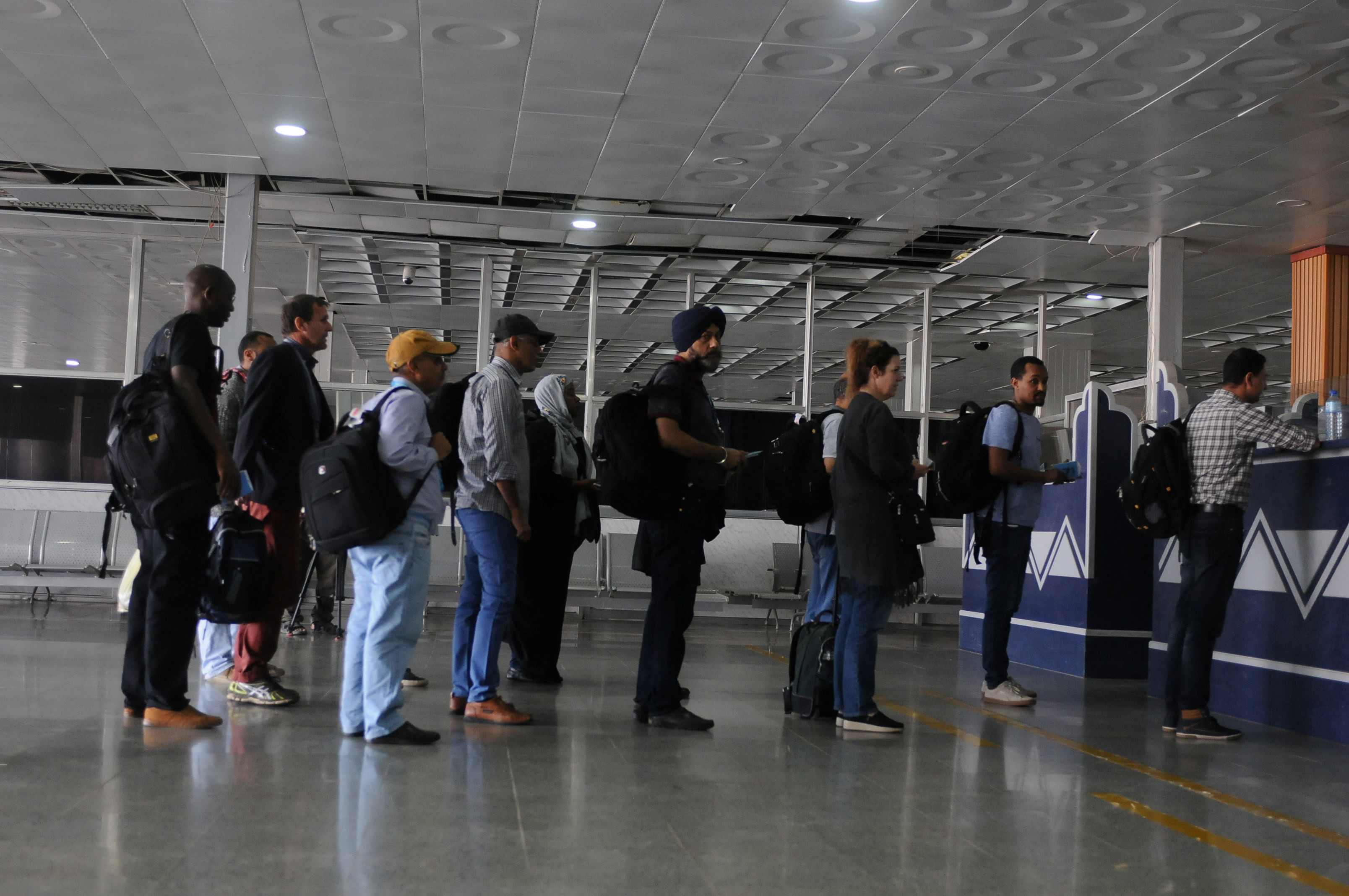
World
15:17, 27-Nov-2017
Wheat and vaccines arrive in war-torn Yemen after blockade
Alok Gupta

Humanitarian aid and relief workers have started trickling in to war-torn Yemen after three weeks of a military blockade.
A shipment carrying 5,500 tons of wheat flour and a chartered flight carrying vaccines have arrived in the country in the last two days.
Yemen, one of the most impoverished nations in the Arab world, has been witnessing a civil war between President Abdrabbuh Mansour Hadi's forces and Houthi rebels for the last two years. A series of military and rebel strikes have killed more than 8,600 people and injured nearly 49,000.
On November 6, a coalition led by Saudi Arabia had closed air, land and sea routes to the country following a missile attack by Houthi rebels near the Saudi capital of Riyadh.
Wheat flour arrives by sea
After three weeks of the blockade, a privately owned commercial ship carrying 5,500 tons of flour docked at Yemen's Hodeida port on Sunday. Another vessel dispatched by the UN World Food Programme (WFP) with 25,000 tons of wheat was due to reach the al-Saleef port on Monday.
Wheat is a staple diet of 25 million Yemeni and more than 90 percent is imported through sea routes. Unfortunately, at present ports are under the control of either Hadi-led forces or Houthi rebels leading to disruptions in the supply of essential goods.
According to the WFP, nearly 17 million or 60 percent of Yemeni are reeling under food shortages, and 6.8 million of them are severely affected. The ongoing war has further aggravated the situation by displacing 3.1 million people.
The UN agency estimated that it needed 323 million US dollars from July to December 2017 to provide food to the country. In a bid to avert famine, China donated five million US dollars to the WFP in July.

Aid workers stand in line to get their passports stamped upon arrival at the
Sanaa airport, Yemen. /Reuters
Aid workers stand in line to get their passports stamped upon arrival at the Sanaa airport, Yemen. /Reuters
Hunger is causing malnutrition to spiral in the country, especially among children, and the lack of medicine and vaccines has rattled relief agencies.
Chartered flight brings vaccines
Aid workers were relieved when a plane chartered by UNICEF landed at Saana airport with 15 tons of vaccines, enough for saving 600,000 children from life-threatening diphtheria, tetanus, whooping cough, meningitis, tuberculosis, and pneumonia.
Two aircraft carrying UN aid workers and International Committee of the Red Cross (ICRC) officials also landed at the airport.
“The vaccines arrive at a critical time for Yemeni children as stocks were rapidly running out, increasing the risk for more children to fall sick or even die. Already, across Yemen today, a child dies already every 10 minutes of preventable causes,” UNICEF said in a press release.
On November 16, the Saudi-led military coalition partially lifted the blockade, but the relief was termed inadequate. In a joint statement, the World Health Organisation (WHO), UNICEF and the WFP appealed for a complete removal because vaccines need a cold chain to maintain their efficacy.
Earlier, UN agencies had prepared to dispatch one million doses of cholera vaccines to Yemen which has 900,000 suspected cases, the world’s worst outbreak since Haiti reported around 815,000 cases in 2010.
The vaccines were rushed to Djibouti in June for shipment to Yemen, but the distribution was called off after the Yemen government refused cholera vaccination in the country.

SITEMAP
Copyright © 2018 CGTN. Beijing ICP prepared NO.16065310-3
Copyright © 2018 CGTN. Beijing ICP prepared NO.16065310-3